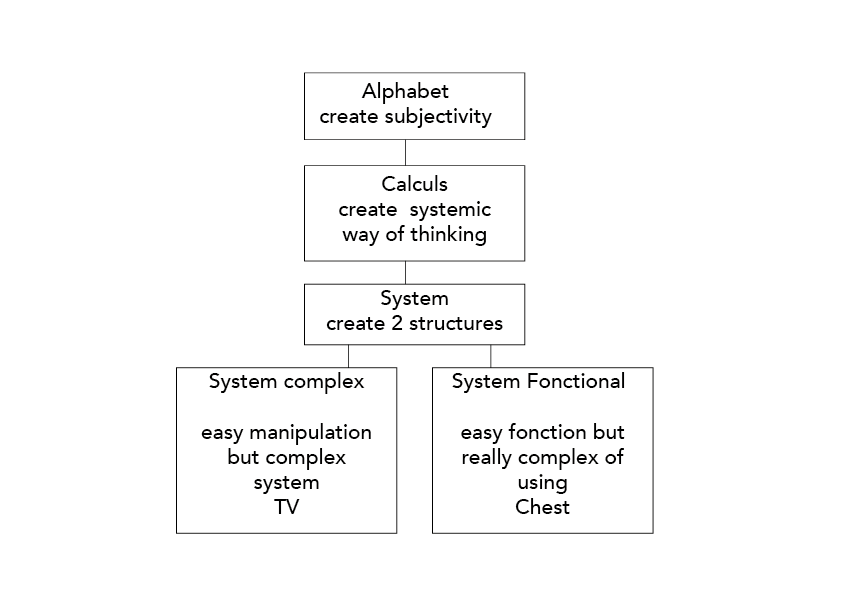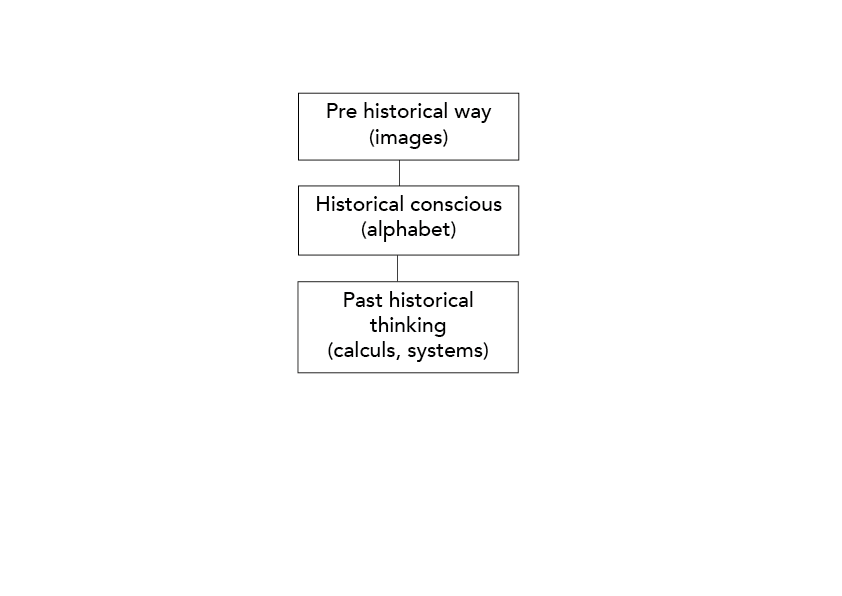Writing page
EXERCICE 1 / 14.09.2016 Writting an essais about a project we did. WHY HOW WHHY
The project "72", is a photography/editorial project I made last year. Unfortunately the project was created just after a tragic story. Two years ago on Christmas, one of my dearest friend killed herself in her apartment. I always think life is a coincidence of things and,at this period I was questionning myself about time. The project is an edition A4 with fine and translucide paper. The photographies are analog black and white photography. On each double page you will see a photograpy and on the other in front you have the date and the text i wrote at this time.
The project has really began when my friends and I return in her apartment at dusk. No traces were in it anymore.We were sitting on the living room, alone and silent. Few minutes later I was looking at the place and thought about the image of the apartment I will remember and, ask myself, would I be returning here after this moment ? I had my camera on me and I began to capture all the rooms of the apartment, room, bathroom, kitchen. The only picture where you see people is my friends sitting in the living room, remainning silence.Nothing personal was left in it. No personality was on the picture, only space.It was like taking real estate picture. After doing this, I began to read essays, as "La maison corps et âme", byJean Onimus or "Histoire de chambres" which were about feelings you can feel for a house, home, place. That is how the apartment begin to be the main protagonist of this edition.
The life around me was still going. But I couldn't stop remaining me this empty apartment and at last it appear to me as the only rampart again time passing. I was writing texts during all the time I was creating this project, to keep on paper all the feeling and thoughts. I was trying to catch something uncatchable by reading, photographing and writing The process of developing film picture was for me the perfect image of what can be a mourning, a souvenir. At first, you don’t know how much time you have to put a light on, but more and more you learn how to control it, like your development. Unlike I am use to create methods before to begin to create a project, expect for this one, it has been build as the same time as the project was growing. I didn't thought of audience for this book, not even for my friend, that is only when I shown them the final edition that I understand the power it could had on other. This is also where I realized that the method I had used and mediums chosen were almost unconscious choices.
EXERCICE 2 / 28.09.2016
Taking notes about Vilèm Flusser, 1988 interview about technical revolution and Marshall Mcluhan Full lecture: The medium is the message - 1977 part 1 v 3 -
Alphabet as software, technology.
Literacy is a recent technology, not so long ago books where consider as technologie. They help preserving the human memory. Technology can be understood as a tool for the stability of memory.
The relation to history is really different for literacy and orality. Literacy is consider as a technological revolution.
Flusser
I AM HERE BECAUSE : present cultural revolution is no more accentuate. Language and communication are not capable anymore to transmettre a concept we have about the world.
NEW FORMULA=NEW CONCEPT New codes are appears. The code of technical image. To understand the world we have to calculate no, words are less useful now. The number began to be images of concepts. And computer has develop those number to create images.
Concept of communication use synthetic image and no words anymore. There is a revolution here !
The alphabet is a total revolution, total transformation of action Before, images were considered as a map of the world. Mystical image of the world.
Our history came with the alphabet because alphabet has a structure on a causality, critical way.
Structure complex : There are complex relation between each others, but the use of this complex is easy (as tv, radio, internet, computer…)
Structure fonctional : The form of it can be really simple but the use challenge your mind. ( chest, books, …) Both of this concept are independent from each other.
For Flusser, the system can be really complexe but it’s the use of the user who make is low. There is a lower thinking of the system.
It’s not the system’s fault.
The history seen by Flusser :
Philosophy of the image : The image history is a negative one. It comes from our greek / jewish philosophy, and has prejudices. The image was understand as a copie of the reality at this time. But now they are articulate around ideas, concept and are no more consider as projection of reality. ( Walter Benjamin).
CONCLUSION: Every revolution is a technical revolution. So if the present is one- today the technique are less
about the object but more about imitating the human nervous system. It’s an immaterial, spiritual revolution.
EXERCICE 3 / 12.10.2016 Summarizing the main idea of a text we chose. I chose the introduction text of the book, Esthétique du livre d'artiste, by Anne Moeglin-Delcroix
The first edition of this book was made in 1997 and was written between 1992 and 1994. Its first goal was to make known the importance of the artistic book and its role in contemporary art. It was re edit in 2014.
The artist book has always been related to its own contemporary time, through social, philosophic, political, and cultural environment and of course to its authors, artist. By using the theme as contemporain I mean to the artist of his own time. The book, seems to be the meeting point of all conceptual artist in the 60-70’s, even if we know there are different between different artist and their works, they all seems to gather in the form of book. The esthetique of those artists and their books are going to define what is actually the contemporary art. Laurence Weiner, in 1970, state the artist book by the way of compare it to medical revue. « If there is any sense and if we are not conscious about the context the publication is part of it is obsolete. The reader need to be conscious about the system is living in. The art doesn’t exist for those who don’t know in which cultural configuration there are in. »
But on this point, people and particulary critics disagred, saying that « artist books aren’t art ». On this point we may need to redefine was is actually, nowadays contemporary art ? From the moment this book was written(1997), art world has changed. It has been denatured by money and finance. Art began to be mercantile and consumerism. What the conceptual were trying to achieve, the total dematerialization of art, is now alive with all the virtual money transaction on art works.
Also, we need to stipulate that today it exist a confusion between artist books and well realize books, design books. At first side( 60-70’s), the artist books were a medium for artists to escape from the museum and economics systems of gallery and by this way to have a complete freedom to express themselves without any authority above them.
Today this questions of freedom it’s still true, but i has change a bit. Contemporary artist find in book a way to escape the system, find a way to create their own space to express themselves and to get in touch with the public without going through only one way. It is now, not anymore a question of escaping the economic system but to resist to it.
Because of the confusion between artists book and design books, people are afraid that the artist book begin to be trivialized. With all the new technologie we have, and particularly with the installation of printer in every houses, everybody could make a book, without thinking in what is exactly a book ? The luxury of books manage to make books begin to be objects. And with this fact artist has to renonce to their authority on their works. In the 60-70’s conceptual artist were creating the all process of the books, their arts were the book itself. And by this way they were the book mechanism. Now it seems that the editor is the main role of any publication. Does it means artist work is now just content that help to make a beautiful edition ? His edition of his work is it still his in reality ? We can wonder what is the artist place in his own publication ? We can stipulate that if the artist doesn’t resist to thoses editorial social economics conventions he will lost any authority on his own creation. And if it is the case, can he still be an artist ?
EXERCICE 4 / 9.11.2016 What is your interest in this text
Writer: describe, in your own words, what the text (s) you are reading are about.
I have been reading Paragraph on Conceptual Art, of So Lewitt. This text has been published in Artforum vol 5 n°10 in 1967. So Lewitt is at this time a conceptual artist. In this text he try to explain what and how works conceptual art. Because he is conceptual artist he has experience the process and he describe it in this text has a system. How the system of idea is working, what kind of workflows does conceptual art is actually using to create ? Also he is giving his own opignion on what could be the finality of this system.
Why this text is of interest to you?
This essais attract my attention because the conceptual art appears to me as a concept itself. And because I am building a reflexion up on it, I try to dig in it to find out what is actually conceptual art. Because this mouvement seems to not be a real one, that it hasn’t his own materials but plural mediums it is really complicated to create a statement or a complete idea on it. That is for, in this text I found really interesting that So Lewitt explain it has a system, a system that apparently works because he use it himself in his art. In this text the artist is not giving his own point of view, instead he is really describing his process of creation and moreover the art conceptual process.
What is its relation to your self directed research?
Because the author is describing a system and its guide lines wich seems to be really open. ( I use the term « seems » in a sens at first side) we can imagine how diverses it application can be. I guess also the main idea of the text beside explaining and analyse what is conceptual art is also to transmit the feeling that art and idea are all about questionning ourselves. And what is an idea, what is the form we can give her, do we need to give her a form, does she has a place out there ? I think all of this questions can really be applied to the question of what is publishing ?
« Conceptual art is only good when the idea is good » Sol Elwitt.





